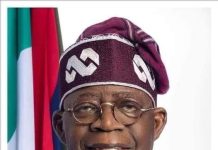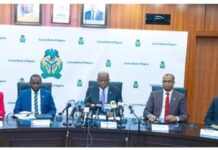
Should the United States slam a visa restriction on Nigeria as being currently speculated, its attendant consequences will undoubtedly be enormous. Already, Iran, Libya, North Korea, Somalia, Syria, and Yemen are facing U.S. travel ban, an action U.S President Donald Trump explained, in 2017, as safeguarding America and its citizens from terrorism.
Aside Nigeria, the coming ban will have Eritrea, Tanzania, Belarus, Sudan, Myanmar, and Kyrgyzstan. According to foreign media reports, the travel ban will only apply to specific targets including government officials and to certain visa types.
In spite of this, such policy against Africa’s most populous country and, ironically, a strategic trading US partner clearly indicts the current administration. Before now, the US had expressed its displeasure with the administration’s poor human rights records and penchant to trample the Rule of Law. Definitely, this informed Nigeria’s designation by the US, recently, as a country promoting religious discrimination. It is noteworthy that the US statement announcing the depiction had cited the killing of members of the Islamic Movement of Nigeria’s (Shi’a) and continued incarceration of its leader, Ibraheem El Zakzaky, despite court bail.
Beside being bad optics for Nigeria internationally, the travel ban will equally have telling effects on the country’s precarious economy and flow of Foreign Direct Investment, FDI, from the US. The aftermath of the proposed travel ban, certainly, will impose quite rigorous and exorbitant expenses on visa processing, such that it becomes frustrating to foreign and local investors. Since international trade largely requires that personal contacts be established at some point between trading partners or investors, hardship in securing non-immigrant visa will adversely affect trade negotiations and investment. Combined with the reality of Nigeria being a monolithic economy and consumption-driven, investment and accompanying job creation will take a reverse.
As statistics have shown , U.S and Nigeria are strategic trading partners. In 2018, US goods and services trade with Nigeria was estimated to be $11.3 billion, comprising export goods ($2.7 billion) and import goods ($5.6 billion). Trade in services for 2018 totaled $3.0 billion, comprising services exports ($2.4 billion) and services imports ($531million).
On humanitarian aid, the US, like other development partners, has been involved in various developmental projects in Nigeria. These include the fight against HIV/AIDS, education, peace and security, health, and military assistance. In the same vein, the United States Agency for International Development, USAID, has splurged $308.9 million in assistance to Nigeria in the recent years, while US Military Security Assistance gulped $133million; Population, Refugees, and Migration, $39.72 million; Democracy, Human Rights, and Governance, $31million; Education, $25million; Law Enforcement, $6.5million; Centre for Disease Control (immunization and Health Protection) $18.6million, e.t.c
Based on this analysis, US travel ban is clearly bad for Nigeria.
It is therefore imperative for the Nigerian government to take proactive measures by launching serious diplomatic interventions, while exploring ways of improving on its counter-terrorism efforts in line with demands of its developing partners.





